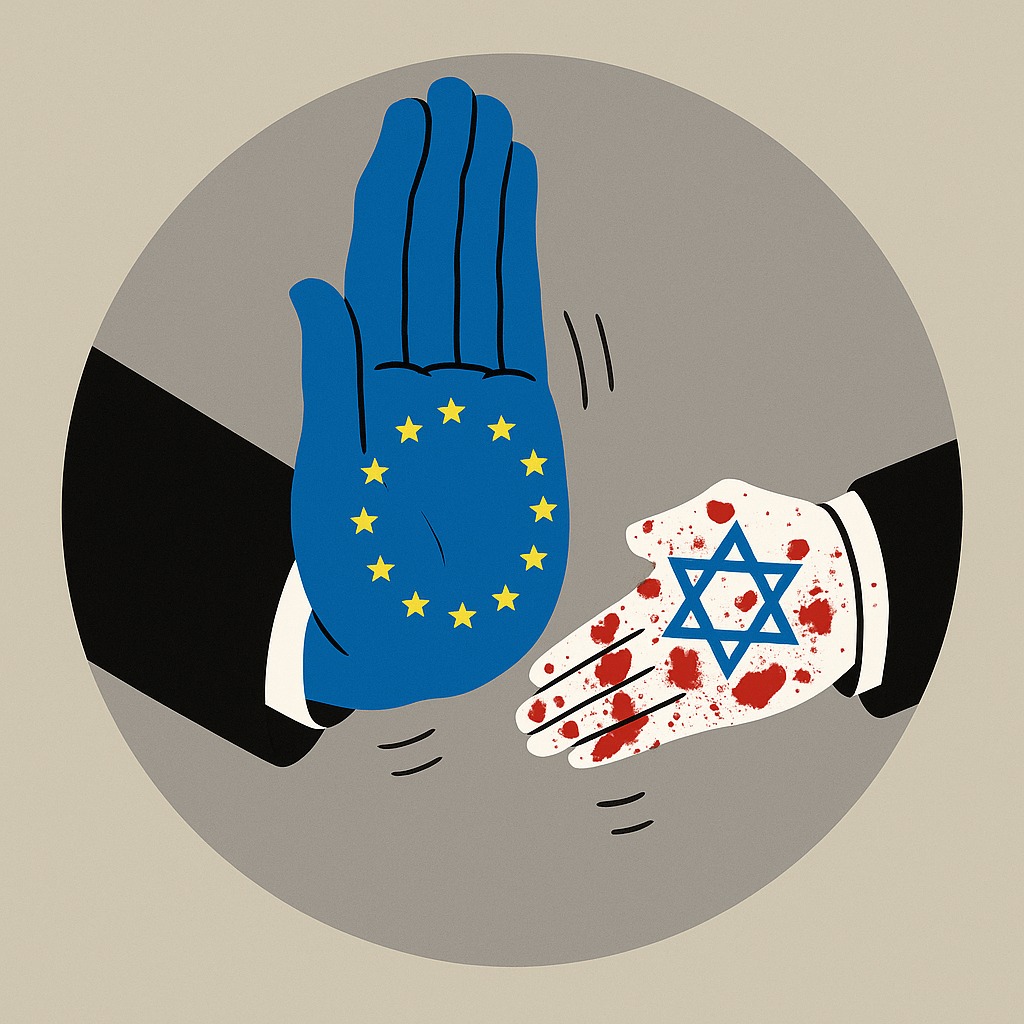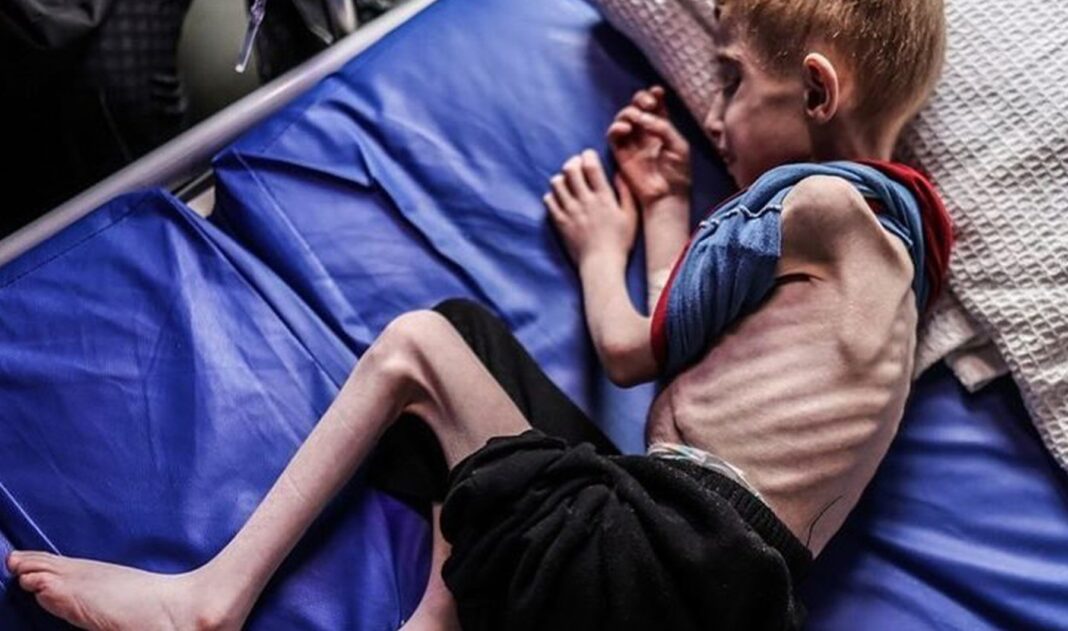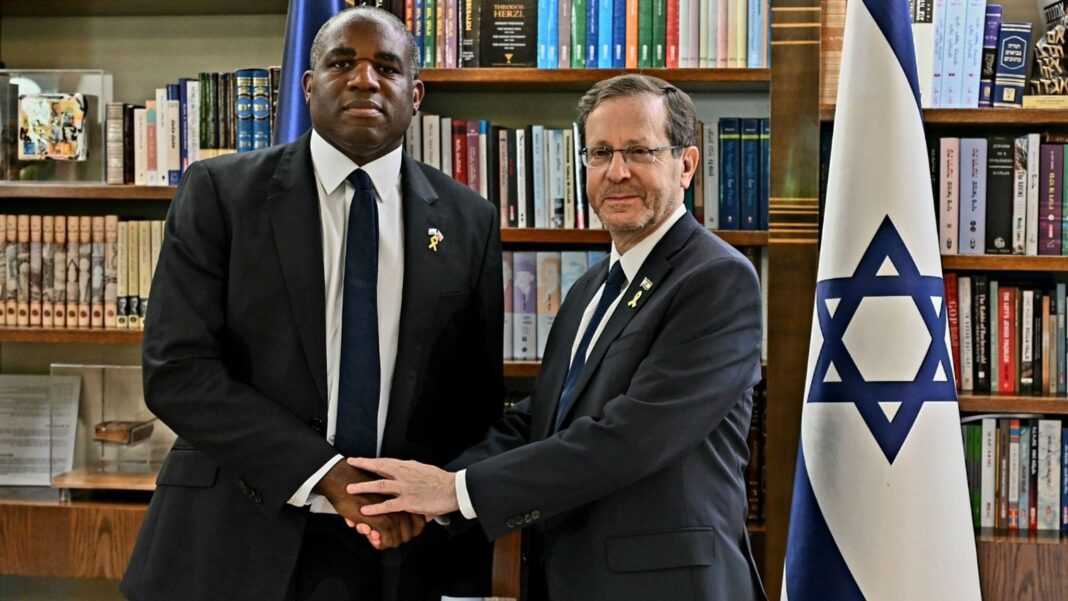The European Union, once a steadfast economic and diplomatic partner to Israel, is now leading a growing international revolt against its war in Gaza — denouncing it in the clearest terms as ethnic cleansing and, increasingly, genocide. Across parliaments, courtrooms, and cabinet meetings, EU member states are no longer content to express “concern.” They are naming Israel’s actions for what they are — and beginning to take decisive, coordinated steps to hold it accountable.
This rupture, long thought politically impossible, now threatens Israel’s most important trade and diplomatic alliances. It also reflects a wider breakdown in global impunity as public outrage, legal warnings, and battlefield realities converge to force a long-overdue reckoning.
From Gaza’s ICUs to Europe’s Parliament
The turning point began with the voice of Dr. Tanya Haj Hassan, a paediatric intensive care physician who spent months in Gaza in 2024 and 2025.
Speaking to the European Parliament on April 28, Haj Hassan described the conditions she witnessed: hospitals bombed to rubble, infants incinerated in incubators, children begging to die after learning their families had been wiped out by airstrikes.
“What red lines were not crossed?” she asked. “Every act I witnessed would have triggered global outrage if committed elsewhere — but in Gaza, we watched in silence.”
Her testimony was not merely descriptive. It was a moral indictment — of the European Union’s complicity in enabling the war through arms exports, trade deals, and diplomatic cover.
“This is the most livestreamed genocide in modern history,” she said. “No one can say they didn’t know. Only that they knew — and did nothing.”
Borrell’s Bombshell: Genocide and Ethnic Cleansing
Just over a week later, former EU foreign policy chief Josep Borrell — long considered a diplomatic moderate — used the stage of the Charles V European Award to deliver the most blistering speech of his career.
“We are facing the largest ethnic cleansing operation since the end of the Second World War,” Borrell said before King Felipe of Spain. “Three times more explosive power has been dropped on Gaza than was used on Hiroshima.”
Borrell openly accused Israel of violating every norm of humanitarian law, using starvation as a weapon, and pursuing a plan of extermination. But he didn’t stop there. He directly rebuked Europe itself for failing to act.
“We supply half the bombs falling on Gaza. If we believe too many people are dying, the next step must be to stop supplying the weapons.”
His call to suspend arms exports and review all EU-Israel agreements has echoed across the bloc — particularly among countries where legal advisors are warning of potential complicity in war crimes.
The Netherlands Leads the Legal Front
One of Israel’s most historically supportive European allies, the Netherlands, is now leading the legal and diplomatic charge.
On May 8, Dutch Foreign Minister Caspar Veldkamp announced that the Netherlands would restrict all dual-use exports to Israel and enforce individual inspections of every shipment — a sharp escalation of previously halted arms transfers.
“We’ve drawn our line in the sand,” Veldkamp declared at a meeting of EU foreign ministers in Warsaw. “The situation in Gaza is catastrophic — and incompatible with the rule of law.”
In a formal letter to EU foreign policy chief Kaja Kallas, Veldkamp urged a review of the EU-Israel Association Agreement, citing Israel’s ongoing violations of international humanitarian law and the International Court of Justice’s provisional measures. He also accused Israel of undermining humanitarian aid principles by demanding control over Gaza’s relief distribution.
The Netherlands now plans to veto any renewal of the trade agreement, which forms the basis of EU-Israel economic relations.
Rallying Across the Continent
Other EU countries are following suit:
- Belgium has voiced support for a full trade review, with Foreign Minister Maxime Prévot saying, “What we are seeing is shameful. It must stop.”
- Luxembourg’s Xavier Bettel lamented, “They are listening to no one. At this rate, Palestinians may cease to exist.”
- Ireland’s Green Party has demanded the EU invoke Article 2 of the EU-Israel agreement — allowing suspension in cases of human rights violations.
- Over 70 former Eurovision contestants, including Irish winner Charlie McGettigan, have demanded Israel’s exclusion from the 2025 contest, likening its treatment to Russia’s following the invasion of Ukraine.
This is more than symbolic. The EU is Israel’s largest trading partner, accounting for roughly one-third of its imports and exports.
UK Parliament Joins the Shift
Across the Channel, the UK Parliament took its strongest position yet on May 7, with a bipartisan denunciation of Israel’s conduct.
“What we are witnessing is not just morally indefensible,” said Minister for the Middle East Hamish Falconer. “It is legally indefensible.”
Parliamentarians called for:
- A total arms embargo;
- Sanctions on Israeli ministers advocating annexation;
- A ban on settlement goods;
- And formal recognition of the State of Palestine.
Even long-time Israel supporter Mark Pritchard MP reversed course:
“I got it wrong. This is not self-defense. It is systemic destruction.”
Legal experts have warned UK officials that continued military support to Israel may result in future international legal action.
Cracks Within Israel’s Military and Society
The collapse of international cover is mirrored inside Israel, where former IDF Chief of Staff Moshe “Bogi” Ya’alon has accused the army of carrying out ethnic cleansing and turning soldiers into war criminals.
“Illegal orders must be refused,” Ya’alon told Israeli media. “This war is being waged for a supremacist vision — not security.”
His words have resonated. Over 50% of Israeli reservists are now reportedly refusing to serve.
Yemen’s Escalation and Israel’s Strategic Isolation
Externally, Yemen’s resistance to Israel’s war has proved devastatingly effective. On May 10, a hypersonic missile struck near Ben Gurion Airport, disrupting air traffic and exposing the failure of U.S.-made THAAD systems. Yemen has declared it is entering a new phase of attacks, with U.S. forces now completely withdrawn from operations against the country.
The result: Israel’s main southern port in Eilat has declared bankruptcy, and Netanyahu finds himself globally isolated.
Conclusion: Europe’s Strategic Divorce
The European Union’s stance on Israel is no longer one of concern, ambiguity, or rhetorical restraint. It is one of political rupture, legal awakening, and moral realignment.
“Europe has the means not just to protest, but to act,” Borrell said. “And now — finally — it is beginning to do so.”
As the EU moves toward trade suspension, sanctions, and legal accountability, one thing is clear: the diplomatic immunity once extended to Israel in Brussels is gone.
What remains to be seen is whether this break will be sustained — and whether it will force the war in Gaza to a long-overdue end.




